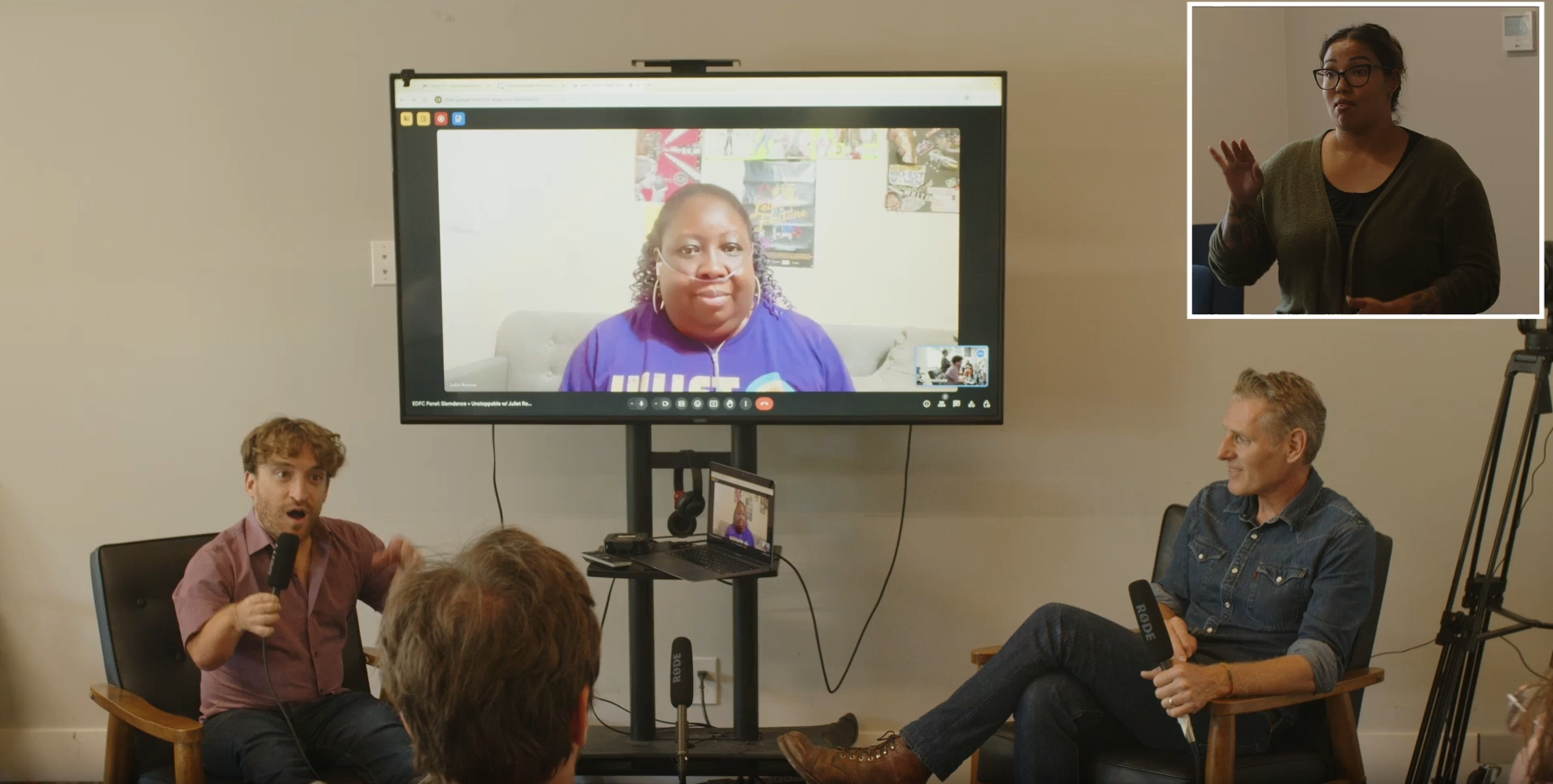The Festival Strategy Series: Insights from Slamdance Co-Founder Peter Baxter and Unstoppable Founder Juliet Romeo

As we conclude the Festival Strategy Series, we had the privilege of hosting two incredible leaders in independent filmmaking: Peter Baxter, co-founder of the Slamdance Film Festival, and Juliet Romeo, founder of the Unstoppable program within Slamdance. Both shared their journeys and invaluable advice for filmmakers navigating the world of film festivals.
Peter Baxter on the Origins and Spirit of Slamdance
Peter Baxter shared the fascinating history of Slamdance, which began in 1995 as a response to rejection. Drawing inspiration from the Salon des Refusés—an art exhibition for works rejected by the Paris Salon—Slamdance was created by filmmakers for filmmakers. Its purpose was clear: to provide a platform for emerging talent often overlooked by traditional film festivals.
What Makes Slamdance Unique?
Operated by Filmmakers: Filmmakers who screen at Slamdance are invited to become programmers for future festivals, fostering a sense of community. Today, over 200 volunteer programmers contribute their time to curate the festival.
A “Human Experiment”: Peter likened Slamdance to an evolving experiment, where artists are encouraged to express themselves with minimal institutional rules or constraints.
Peter emphasized the festival’s open environment, noting that its alumni include industry giants like Christopher Nolan (Following), Anthony and Joe Russo (Avengers: Endgame), and Oren Peli (Paranormal Activity). These filmmakers broke boundaries, demonstrating Slamdance’s role as a launchpad for innovative voices in cinema.
Juliet Romeo on the Birth of Unstoppable
Juliet Romeo’s journey to creating Unstoppable stemmed from her personal experiences as a filmmaker with sickle cell anemia. Facing physical challenges during festivals, she noticed a lack of accessibility and representation for disabled filmmakers.
With encouragement from her friend Joanne Butcher and support from Peter Baxter, Juliet proposed the idea of a disability inclusion program at Slamdance. Thus, Unstoppable was born—a program dedicated to showcasing films by and about people with disabilities.
Building the Unstoppable Community
In its inaugural year, the program relied on curation rather than submissions, with Juliet and others reaching out to find films by disabled filmmakers.
Weekly meetings were introduced to create a comfortable and collaborative space for the programming team, ensuring that disability narratives were evaluated through an authentic lens.
Juliet highlighted the deeply personal nature of many films in Unstoppable and emphasized the importance of involving programmers with disabilities to provide genuine insight.
Advice for Filmmakers from Peter and Juliet
Creating Your Best Work
Take the time to craft your best film; avoid rushing to meet deadlines.
Seek constructive feedback to refine your work.
Re-edit and enhance your film before submission, focusing on elements like sound and storytelling to elevate its impact.
Connecting with Festival Programmers
Write personal letters to festival programmers to showcase passion and effort in a meaningful way.
For late submissions, flag your entry via email or letter to ensure it gets proper attention.
Festival Preparation and Engagement
Utilize Slamdance's preparatory resources, such as filmmaker meetings and the “filmmaker bible,” to optimize your experience.
Attend networking events and actively promote your film to build visibility and connections.
Have marketing materials and a solid promotional plan in place to stand out.
Timing Your Submission
Avoid submitting a film if it isn’t ready; consider holding off until the following year to ensure quality.
The Heart of Slamdance
Juliet described Slamdance as a family, where the close-knit community encourages filmmakers to return as programmers and collaborators. This unique spirit distinguishes Slamdance from other festivals, creating an environment where creativity and camaraderie thrive.
To conclude, Peter Baxter’s words remind us of the boundless potential of independent filmmaking: “New ideas and creators at Slamdance are going to change the film industry.” This is a testament to the power of innovation and community in shaping the future of cinema.
To learn more about Slamdance and its programs, visit slamdance.com. Their next festival is scheduled for February 20-26, and many of their films are available on the Slamdance Channel.




